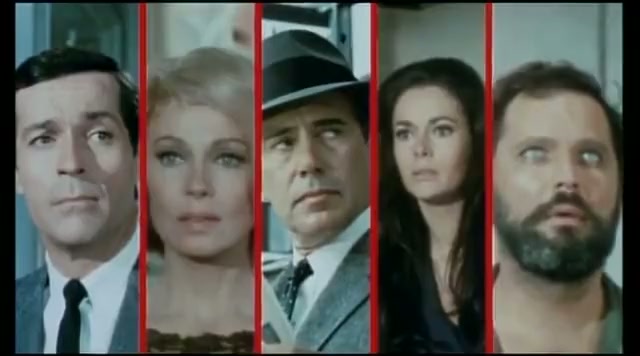Ohjaus:
Alfred HitchcockKäsikirjoitus:
Samuel A. TaylorKuvaus:
Jack HildyardSävellys:
Maurice JarreNäyttelijät:
Frederick Stafford, Dany Robin, Karin Dor, Michel Subor, John Vernon, Claude Jade, Michel Piccoli, Philippe Noiret, Roscoe Lee Browne, Sonja Kolthoff (lisää)Suoratoistopalvelut (1)
Juonikuvaukset(1)
Kun jännityksen mestari Alfred Hitchcock osti bestseller-vakoilujännärin oikeudet, tuloksena oli kiehtova vakoilutrilleri. John Forsythe esittää pääosaa yhdysvaltalaisena CIA:n agenttina, joka palkkaa ranskalaisen urkkijan Devereaux'n (Frederick Stafford). Agentin tehtävänä on lähteä Kuubaan tarkistamaan huhuja, joita kiertelee venäläisistä ohjuksista ja NATOn vakoilijasta, jota kutsutaan nimellä Topaz. Havannassa Deveraux'n tutkimukset muuttuvat vaarallisiksi ja jättävät jälkeensä vallasta syöstyjä hallituksia, murhia, petoksia ja itsemurhia. Saatuaan tehtävänsä päätökseen Devereaux palaa Ranskaan, mutta kun hän aikoo paljastaa kaksoisagentin, vaara ja jännitys kiristyvät äärimmilleen. Loppuhuipennus salpaa hengen Hitchcockin ylenpalttisessa trillerissä, joka samalla vie katsojan tapahtumapaikoille ympäri maailmaa. (Universal Pictures Fin.)
(lisää)Arvostelut (2)
Hitchcock's career culminated in The Birds (1963). The films that followed are very different. Specifically, Topaz is a spy thriller set during the peak of the Cuban Missile Crisis. The book of the same name was written by Leon Uris in 1967 (the Czech translation was not released because Uris as an author began to be published after the revolution and his work addressed different, much more important topics). The cast is magnificent for its time: Karin Dor (a German playing a Cuban), Michel Piccoli and Philippe Noiret (French actors playing villains), or young John Forsythe (fans of Dynasty know him). But pace and tension are nowhere to be found here.
()
Topaz isn't a completely bad film, but it's not a completely good film either. It's a strange film. Actually, it's such an honest-to-goodness spy flick that you can tell it's based on a novel, and it's crammed with so many characters that the main character frequently disappears from the film entirely for long stretches of time and you don't even find it weird. But the worst thing is that the film has no proper finale, climax, nothing at all. Hitchcock's direction saves the day, though, and the way he shoots all those scenes in which there is little or no talking, his imaginative shots, the chilling torture chamber scene, and Maurice Jarre's score make it quite watchable.
()

